Still Exhausted
As 2024 begins, AI feels simultaneously inescapable and invisible. Newspaper editorials, Davos panels, and countless advertisements tout the epochal event that is “AI.”…
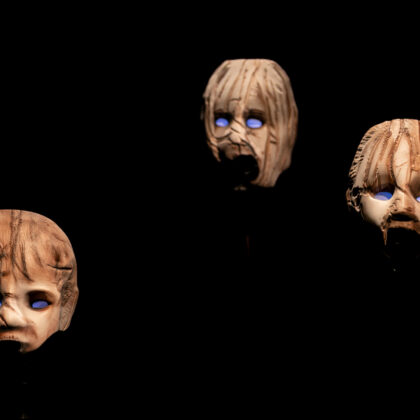
As 2024 begins, AI feels simultaneously inescapable and invisible. Newspaper editorials, Davos panels, and countless advertisements tout the epochal event that is “AI.”…

We usually narrate the origin of performance studies by foregrounding idiosyncratic mid-20th-century thinkers—Erving Goffman, Kenneth Burke, and J.L. Austin, among others—who in different ways refurbished the old idea of the theatrum mundi.…

Between 2012 and 2014, I held a two-year Wellcome Trust Research Leave Award (WT096499AIA) for a project on women surgeons in Britain, 1860-1918.…

A colleague asked me this question last week. I wonder… What is a new way to state what’s at stake? That our future will be more and more challenging?…

“Your authors are a microcosm of the state of the world,” Mariellen Sandford wrote me, when I told her of the challenges we faced completing our issue.…

IFTR 2022 in Reykjavik, Iceland gave us the opportunity to meet with Senior Editor of Theatre Research International (TRI) Silvija Jestrovic.…

In our next issue, TDR is publishing two significant essays in the TDR Comments section of the journal: “A Letter from Moscow” by a scholar who lives there; and Richard Schechner’s “Postpone the Great Game.”…

Antiwar activists carve “no to war” in frozen rivers, spray-paint slogans of peace in the snow. They scrawl on banknotes, putting their opposition into circulation. Despite the looming threat of 15-year prison sentences, artists and activists in Russia continue to protest Putin’s ongoing invasion of Ukraine.

We live in an era of absence. Lockdowns, quarantines, hospitals, and face masks: fear of contamination disappears the body from public space and discourse.…

As a music historian teaching courses about racial inequality, I try to create an environment safe for students of color and challenging for the racially privileged.…

Over the course of my research into Doctor Atomic, I found myself reflecting on this intertwining of the human and the technological, and how this manifested in the opera as well as in my research methods.
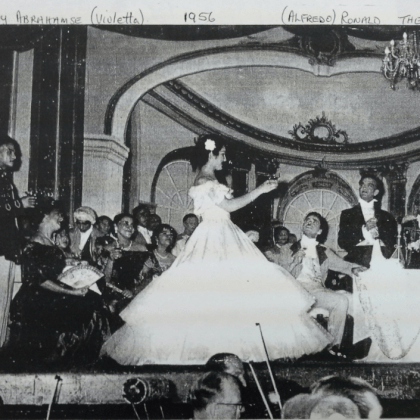
South Africa’s apartheid history is still largely narrated as a tale of heroes and villains. Historical accounts venerate those who resisted the regime, and demonises those who enforced its racialised structures.…

For years now, climate activists have been warning world leaders and everyone who cared to listen that the planet is approaching the tipping point of global warming.…

Emerging to sociality during a pandemic has felt like a process of improvisation—making gestures toward imagining oneself in relation to others, to past selves, and to future possibilities.…

The forthcoming special issue of Theatre Research International (46.2) is devoted to the subject of Sounding Corporeality. The first fully dedicated special issue of the journal since 2014 (39.3), it takes as its focus the relationship between sounds and bodies in theatre and performance.…
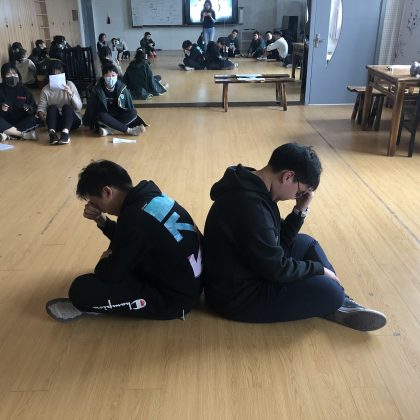
Since the mid-19th century, Western drama has spread to most parts of the non-Western world. In some places it has gradually replaced the indigenous theatre; in others such as China, it has coexisted with the traditional theatre.…

When writing about the uncertain future of contact improvisation during the summer and fall of 2020, in the wake of Nancy Stark Smith’s passing, I noted that one of her most significant contributions to understandings of CI was her theory of “the gap.”…

Gretchen E. Minton's new blog discusses the context of her recent article ‘Ecological Adaptation in Montana: Timon of Athens to Timon of Anaconda’ - out now in Cambridge journal 'New Theatre Quarterly'.

In late 1959, before the tour began, the company’s decision to leave behind its only dancer of colour, the South African-born soloist Johaar Mosaval, ignited parliamentary debates and media uproar... [my article] shows how ballet worked as a tool of British ‘soft power’, aiding the decolonizing state in its effort to shore up ties with white South Africans.

Higher Education from Cambridge University Press is our new online textbook website, launched in August 2020. In recent months Cambridge University Press has introduced a new set of strategies to support changing teaching and learning needs as higher education institutions prepare for a more digitally driven future in the wake of pandemic.…

Let’s face it – stepping (sitting) in front of a camera has become a staple component of working from home during the global pandemic.…

Many of us are discovering that working at home for a long stretch can be difficult. Staying productive and motivated is a challenge, and it is not always easy to find a routine to keep things running smoothly.…

Marlis Schweitzer, Editor of Theatre Survey, discusses the journal's bold new look.
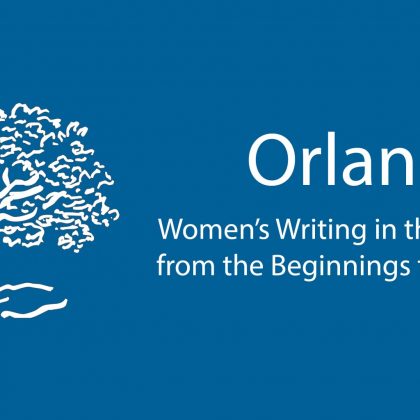
Women’s History Month begins on 1 March 2020 and in recognition the Orlando textbase will be freely accessible without subscription for the entire month.…

Cambridge University Press has reached an agreement with the Modern Language Association of America (MLA) to publish their flagship journal, PMLA.…

WCET Special Issue Issue 36.3 of the British Journal of Music Education is a special edition, focussing on the Whole Class Ensemble Tuition (WCET) programme in England.…
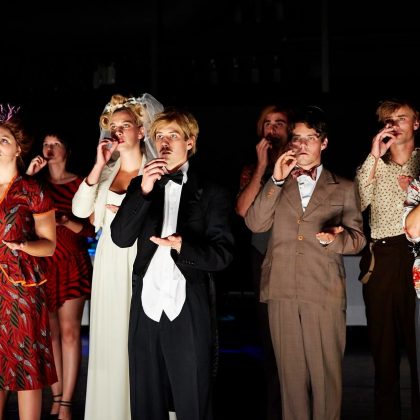
On 16th July 2016 I received a message from my parents telling me first not to worry before breaking the news that a military coup had been taking place in my homeland, Turkey.…

On 28 April 2013, ninety-five years after Finland’s civil war (27 January–15 May 1918), artist Kaisa Salmi created a performance called Fellman Field: A Living Monument to 22,000 People.…
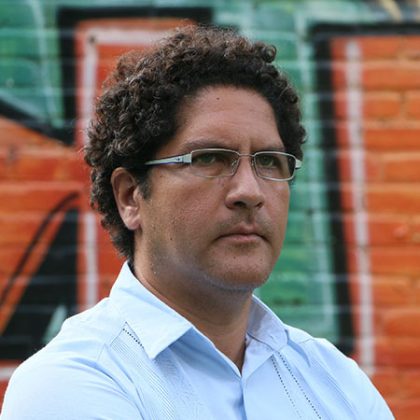
Cambridge University Press is delighted to announce the appointment of Alejandro L. Madrid as co-editor of Twentieth-Century Music, joining co-editor Pauline Fairclough from January 2019.…

In Woody Allen’s Amazon Prime series, Crisis in Six Scenes, his character Sidney suffers a home invasion. Sidney complains: ‘This is my home, this is my castle, you’re going into the moat!’…

Cambridge University Press is partnering with the Renaissance Society of America (RSA) to publish Renaissance Quarterly, the leading American journal of Renaissance Studies.…

To mark his 19 years as Editor of Shakespeare Survey before stepping down this autumn, Peter Holland has looked back across all the volumes he has edited and chosen one article from each.…

In honour of Women's History Month 2018, we are sharing highlights throughout March, written by and about inspirational women. In the following blog post, Katherine West Scheil discusses the contributions of Anne Hathaway.
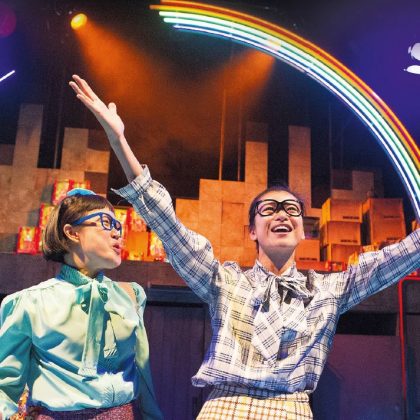
This International Women's Month, we are putting the spotlight on female playwrights in America. Read the following blog by Cambridge University Press author Christopher Bigsby to find out why this is the opportune moment for celebrating these talented female writers.

In the July 2017 issue of the British Journal of Music Education (BJME), co-editor Martin Fautley’s editorial focuses on musical notation: when, why, and how it should be taught.…
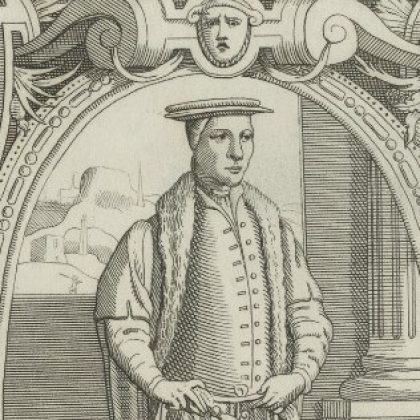
Francis Samwell was an auditor of the Exchequer around the time that Burghley ordered Heywood’s documentation to be re-examined. Perhaps at that time Samwell came across the poem and made his copy of Heywood’s ‘Swannys Songe’.
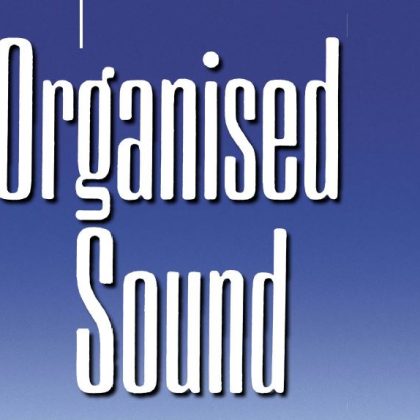
Issue 20/1 of Organised Sound marks the start of the journal’s twentieth year, offering the perfect opportunity to take a closer look at the formative years of OS and how the journal has developed into the focal point of electroacoustic music studies that it is today.…
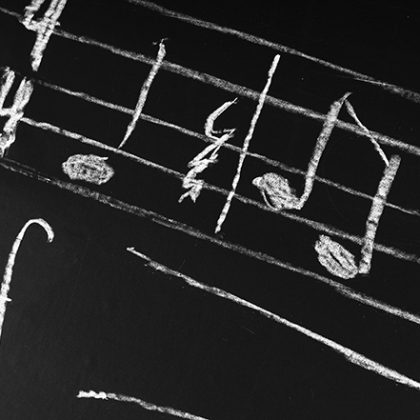
It might be presumed that by having the words music education in its title, the British Journal of Music Education (BJME) would have a coherent view as to what its main topic of interest ought to be!…

The Cambridge Edition of the Works of Ben Jonson is now available as an online resource collection. The first release of the online version of The Cambridge Edition of the Works of Ben Jonson took place in January 2014.…

This blog post, adapted from Robert Adlington and Julian Johnson’s Editorial of the latest issue of Twentieth-Century Music (TCM), considers what ‘Twentieth-Century music’ actually means, and how we define it after the end of the Twentieth Century.…

Dassia Posner, Assistant Professor of Theatre at Northwestern University, was recently awarded the American Society for Theatre Research (ASTR)-Cambridge University Press Prize for her paper “Baring the Frame: Meyerhold’s ‘Reflective Analysis’ of Gozzi’s Love of/for Three Oranges.…
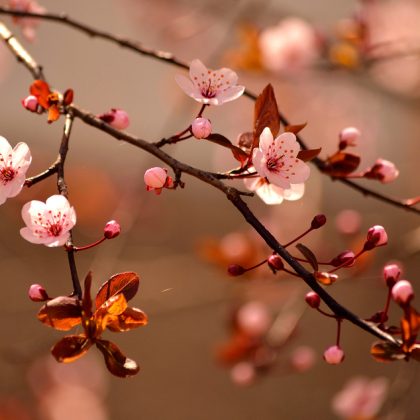
This blogpost is adapted from Dr. Margaret Mehl’s introduction to the latest special issue of Nineteenth-Century Music Review. Japan’s successful modernization on Western premises, in the second half of the nineteenth century, included the introduction and adoption of Western music.…

This blogpost is adapted from the Editorial of Theatre Survey 55.1 by Guest Editor Peter A. Davis. Much work has been done over the past several decades to delineate new theatre historiographies and reimagine theoretical approaches to telling the history of the theatre.…

This blogpost was adapted from the inaugural editorial by TEMPO’s new Editor Bob Gilmore and Reviews Editor Juliet Fraser. 2014 marks the 75th anniversary of TEMPO, and it seems appropriate to ask – in our world of instant connectivity, where information, attitudes and opinions are scattered online as freely as bat droppings – if the new music world still needs a quarterly periodical such as this.…

My article, ‘History without royalty? Queen and the strata of the popular music canon’, published in Popular Music (32.3), investigates canonisation processes in popular music, using Queen as a case study. …

The latest issue of Theatre Survey includes an article by Dr Claire Warden entitled ‘“We are here to salute the Red Army”: Basil Dean and His Russian Adventures’.…

This blogpost was adapted from Regina Murphy and Martin Fautley’s Editorial of British Journal of Music Education 30/3. We write curriculum documents that are full of good intentions – ambitious musical aims, the highest educational aspirations and holistic principles that place the learner at the centre.…

This blogpost is adapted from Charlotte Canning’s Editorial of the latest issue of Theatre Research International (TRI). Where do the limits of performance and everyday life intersect?…

As the second of two features marking Cambridge University Press’ sponsorship of the Cambridge Greek Play 2013, Dr Oliver Thomas, incoming Editor of The Cambridge Classical Journal, considers some of the ways of translating (and not translating) an ancient Greek play to keep it amusing.…
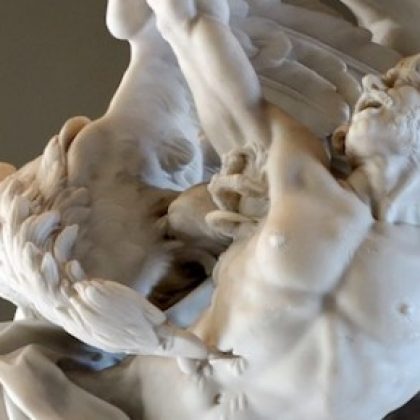
‘All human skills are from Prometheus’..or so Prometheus claims in the ancient Greek tragedy Prometheus Bound. As the first of two features marking Cambridge University Press’ sponsorship of the Cambridge Greek Play 2013, Dr Oliver Thomas, incoming Editor of The Cambridge Classical Journal, explores the enduring fascination of the figure of Prometheus.…

This blogpost was adapted from guest Editors Hazem Azmy and Marvin Carlson’s introduction to a special issue of Theatre Research International entitled ‘Theatre and the Arab Spring.’…

This blogpost was adapted from guest Editor Mary Simoni’s introduction to a special issue of Organised Sound entitled ‘Best Practices in the Pedagogy of Electroacoustic Music and its Technology.’…
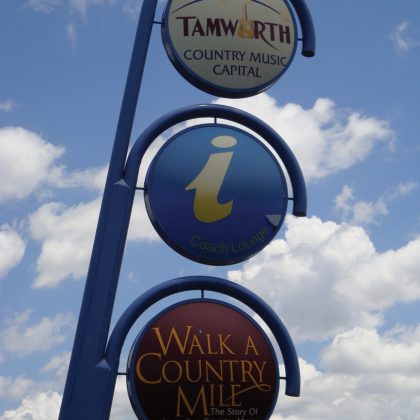
The latest issue of Popular Music features an article by Sarah Baker and Alison Huber about the regional city of Tamworth, New South Wales, the self-made ‘Country Music Capital’ of Australia.…

This blogpost is adapted from the Editorial of British Journal of Music Education 30/2 by Editors Regina Murphy and Martin Fautley.…

The latest issue of Nineteenth-Century Music Review includes a paper by Simon D. I. Fleming entitled ‘The Howgill Family: A Dynasty of Musicians from Georgian Whitehaven.’…
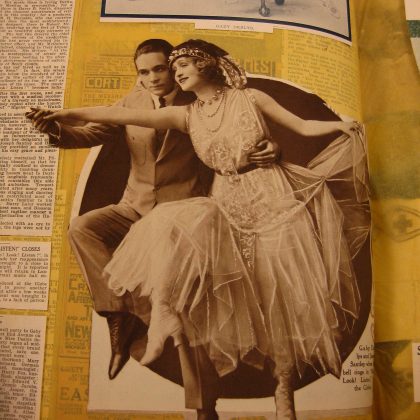
Image 1 The latest issue of Theatre Survey includes an essay by Sharon Marcus which considers the importance of the theatrical scrapbook as a key to understanding the history of performance and spectatorship. …
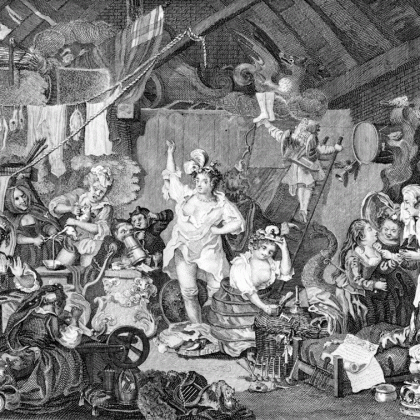
The latest issue of Theatre Survey includes ‘Competition and Community: Mary Tickell and the Management of Sheridan’s Drury Lane’, by Robert W.…

You’ve got an idea for a paper, but aren’t sure about how to get your scholarship to the right audience. Melissa Good, Commissioning Editor for Cambridge Journals, completes her overview.…

You’ve got an idea for a paper, but aren’t sure about how to get your scholarship to the right audience. Melissa Good, Commissioning Editor for Cambridge Journals, gives an overview. …
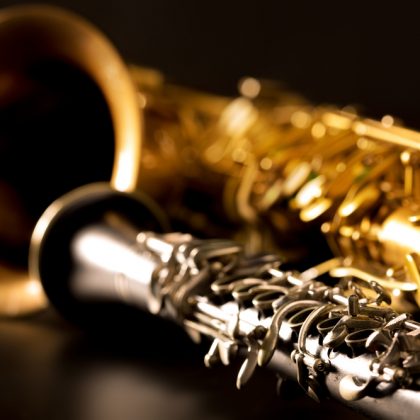
The 9th volume of Twentieth-Century Music is a special double issue entitled ‘Music – Politics – Semiotics: Aspects of the Legacy of David Osmond-Smith (1946–2007).’…

The latest issue of Theatre Research International includes an article by Katrin Sieg entitled ‘Wii Are Family: Performing Race in Neo-liberal Europe.’…

Cambridge University Press Social Science Publisher John Haslam offers a few final notes on getting your first book ready for publication. …

In his second post, Cambridge University Press Social Science Publisher John Haslam offers a few more notes on getting your first book ready for publication. …

The latest issue of Eighteenth-Century Music includes an article by José María Domínguez entitled ‘Corelli, Politics and Music during the Visit of Philip V to Naples in 1702.’…

In the first of three posts, Cambridge University Press Social Science Publisher John Haslam offers a few notes on getting your first book ready for publication.…

This year, Regina Murphy and Martin Fautley replace Pamela Burnard and Gary Spruce as the Editors of British Journal of Music Education (BJME).…

Christian DuComb, Assistant Professor of English in the University Theater at Colgate University, was recently awarded the inaugural American Society for Theatre Research (ASTR)-Cambridge University Press Prize for the Best Paper by a First-time Plenary Presenter at the 2012 ASTR Conference.…
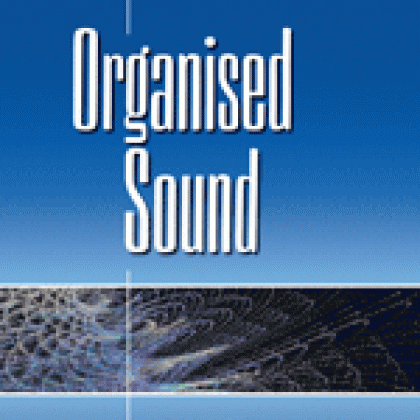
Professor Leigh Landy is the Editor of Organised Sound and Director of the Music, Technology and Innovation Research Centre at De Montfort University, Leicester.…

Christopher Chowrimootoo, an Early Career Fellow in Opera Studies at Oxford Brookes University, has been awarded the Royal Musical Association’s Jerome Roche Prize for his article ‘Bourgeois Opera: Death in Venice and the Aesthetics of Sublimation’, published in Cambridge Opera Journal (22/2) last year.…

Kieran Fenby-Hulse works at the Faculty of Arts at the University of Brighton as a Research Officer. Between 2005 and 2008, he was the editorial assistant for the Cambridge-published journal Eighteenth-Century Music.…
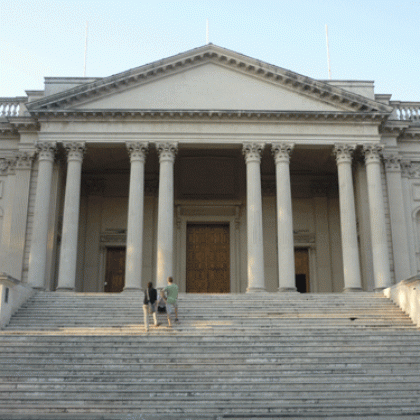
Cambridge Journals celebrated 30 years of Early Music History on 5th July with a drinks reception at the British School at Rome. …

Some of the most important decisions that a journals publisher has to make involve selecting a new editorial team. This process can take many months, and can require careful analysis of both objective and subjective factors.…
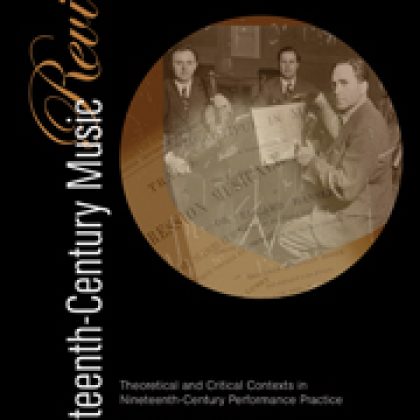
The latest issue of Nineteenth-Century Music Review (NCMR) looks at Theoretical and Critical Contexts in Nineteenth-Century Performance Practice. Guest Editor Mine Doğantan-Dack explains the significance of this special issue and the inspiration behind the cover image.…
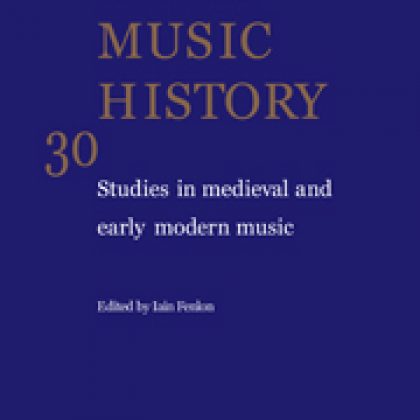
Early Music History recently published its 30th volume. To mark the occasion, Editor Iain Fenlon reflects on the journal’s beginnings in his anniversary editorial.…

The latest issue of British Journal of Music Education (BJME) introduces a new section dedicated to publishing articles by teachers and practitioners.…